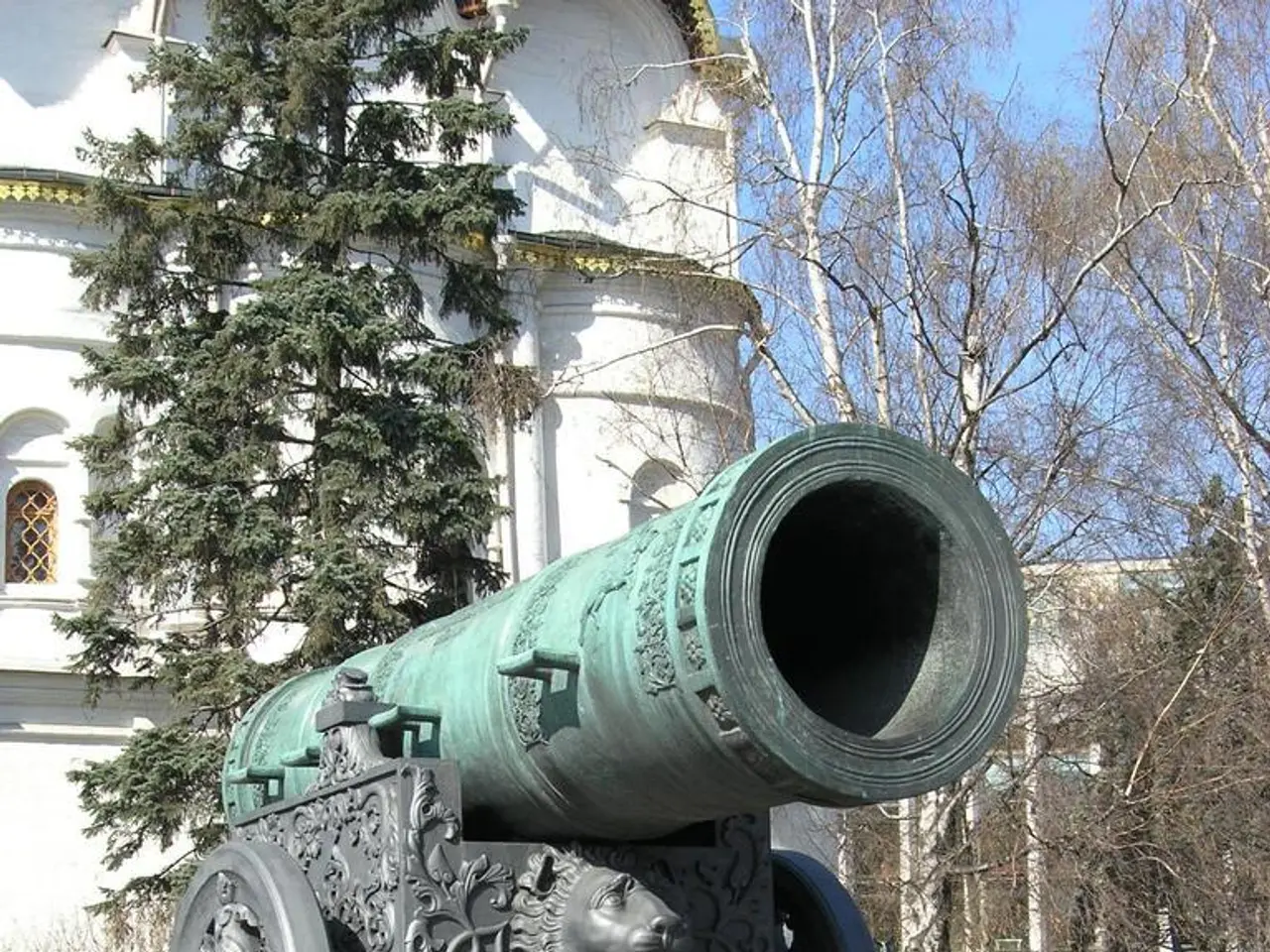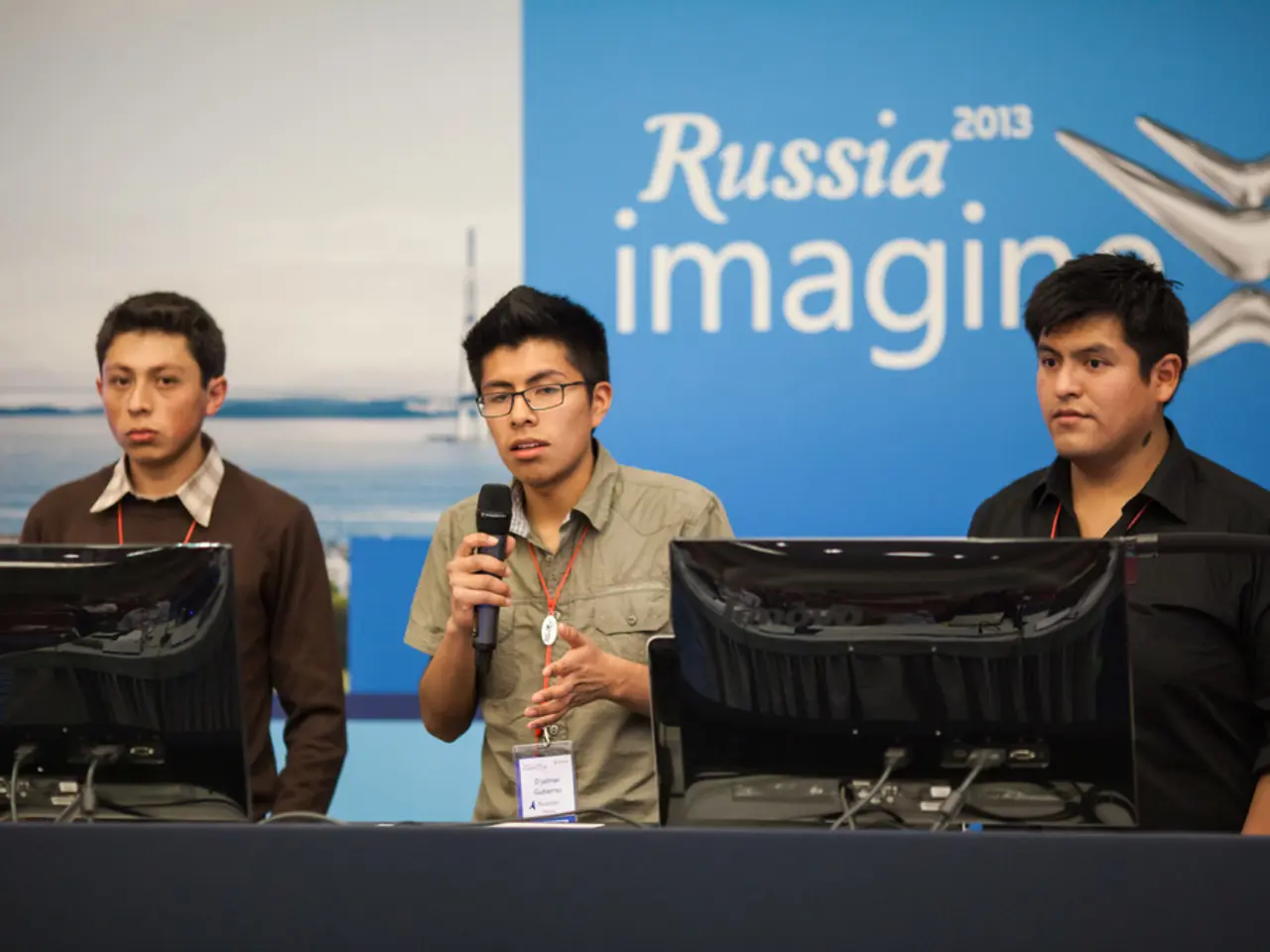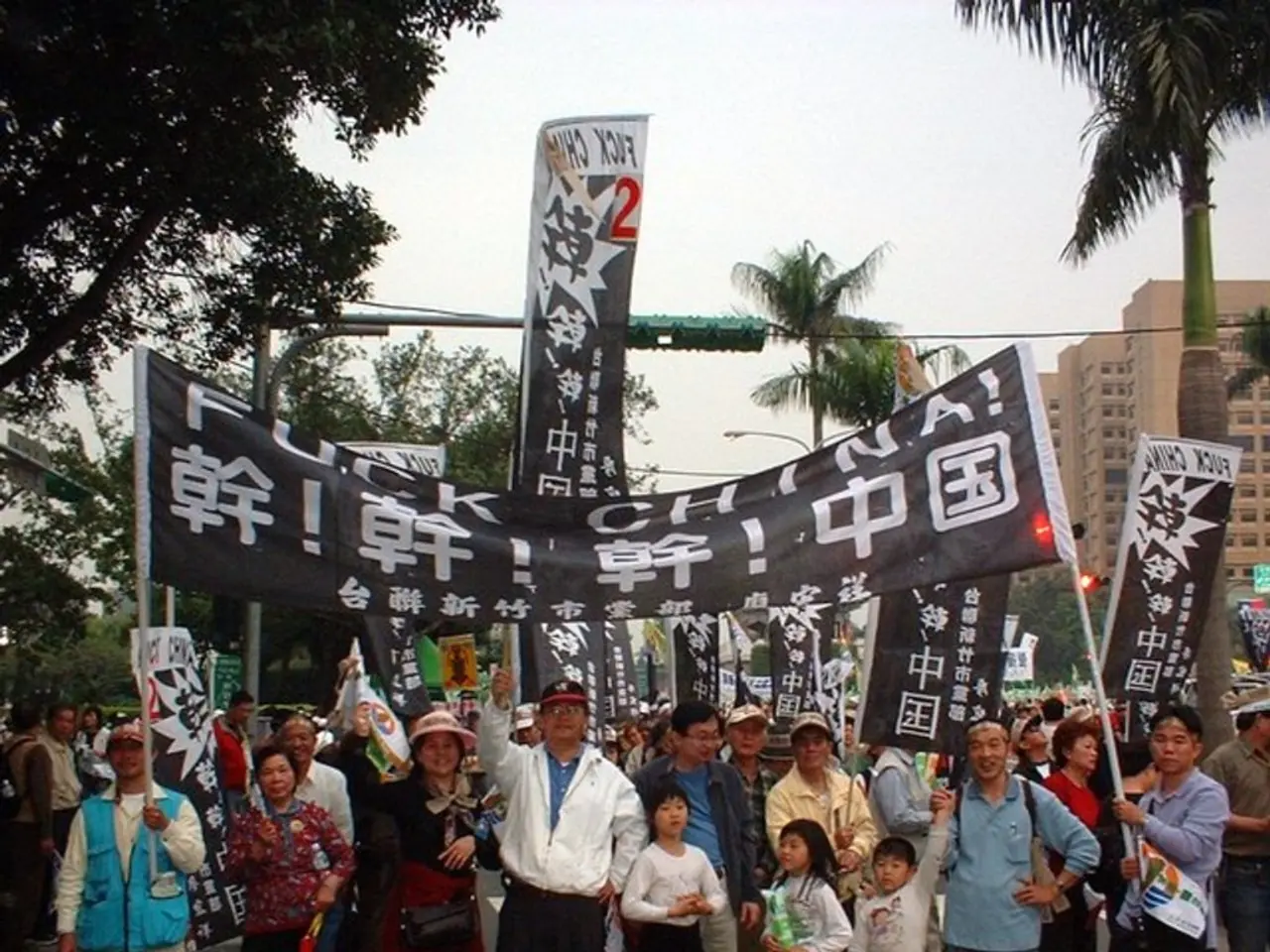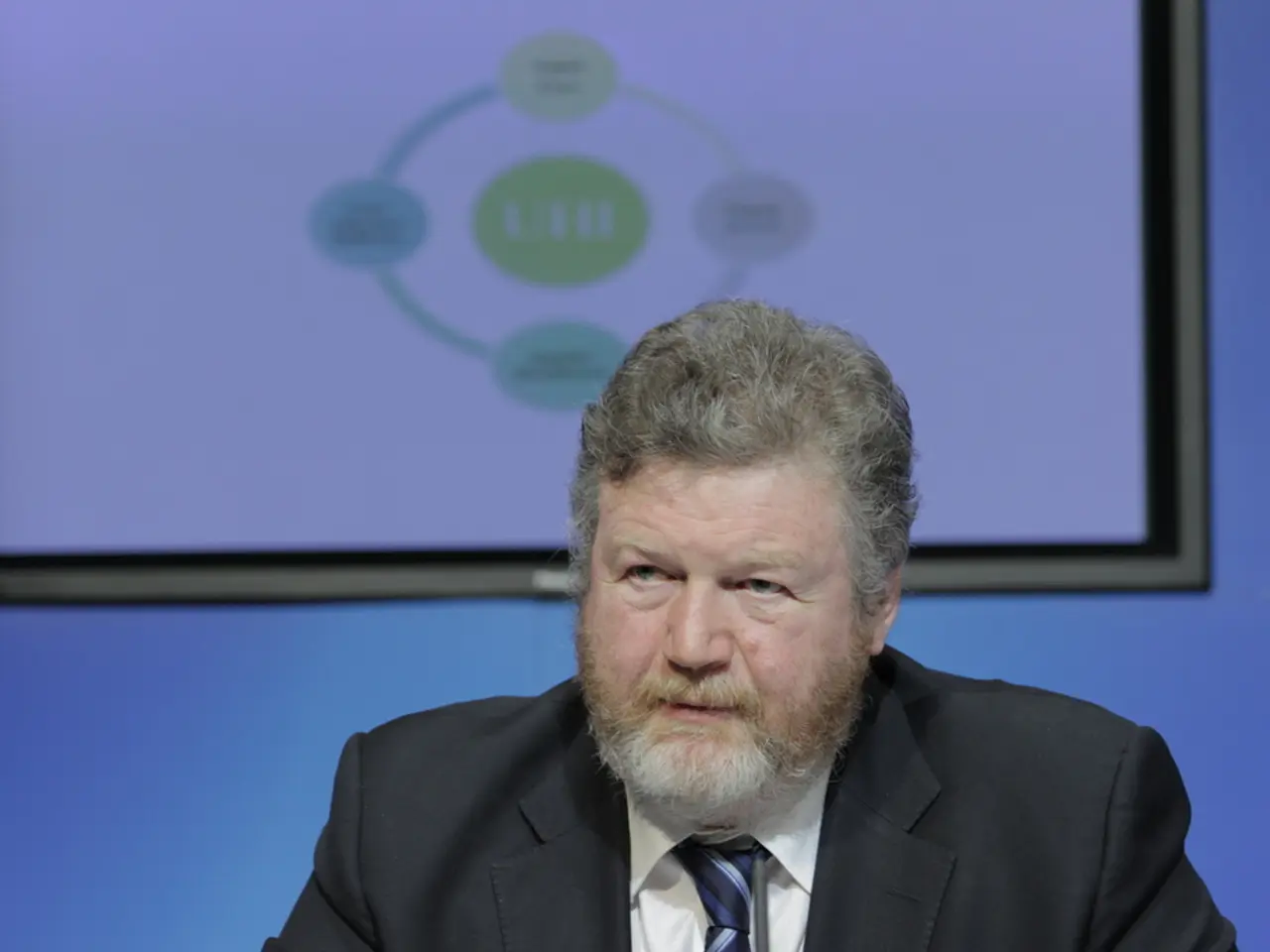Britain No Longer Exists as a Nation
In the heart of mid-2025, the UK government is implementing significant changes to its immigration policies, aiming to reduce reliance on lower-skilled overseas workers. These changes are part of a more restrictive and selective immigration regime, focusing on higher-skilled migrants [1][2][3][4][5].
One of the key adjustments is an increase in the salary threshold for Skilled Workers, which has risen from £38,700 to £41,700, and the minimum skill level requirement has been raised from RQF Level 3 to Level 6 [1][3][4]. This shift has drastically reduced the number of eligible occupations, affecting approximately 180 roles [1][3][4].
The Social Care Worker route is also closed to new applicants, and dependents are restricted under shortage occupation visas [3]. Additionally, language requirements have been tightened, with visa holders and their dependents now needing to meet B2 level on the CEFR scale [2]. These changes aim to promote integration and enhance economic productivity.
Employers face higher immigration skills charges and must adapt quickly to continue sponsoring overseas workers effectively [2][4][5]. This transition may present challenges, but it reflects the government's commitment to "restore control" over immigration.
The debate surrounding multiculturalism and immigration extends beyond these policy changes. Critics often express concerns about the impact of immigration on public services, cultural cohesion, national identity, and labor market efficiency [6].
Some argue that high levels of immigration strain public services, including healthcare, housing, and education. There are also worries about integration challenges and impacts on national identity. Economic arguments appear on both sides, with some viewing immigration as essential for labor needs and economic growth, while others believe it depresses wages or takes jobs from locals [6].
King Charles III, the current monarch, has expressed a keen interest in understanding different cultures. He has studied Arabic to study the Koran and understand inscriptions in mosques and museums [7]. He has also expressed positive views about Islam, stating that it is part of Europe's past and present, and can teach a unified view of the universe [8].
The public discourse on immigration and multiculturalism continues to evolve, with figures such as Labour Deputy Prime Minister Angela Rayner acknowledging the need to address "real concerns people have" regarding migration [9]. However, allegations of bias in the enforcement of immigration laws and the treatment of protests by ethnic Britons have sparked controversy [10].
In the midst of these changes and debates, the UK's immigration landscape is undergoing a transformation, reflecting a complex interplay of political priorities, public opinion, and societal concerns.
References: [1] BBC News, "UK immigration: What are the changes?" (2025) [2] The Guardian, "UK immigration policy: what is changing and why?" (2025) [3] The Times, "UK immigration: key changes and their impact" (2025) [4] The Independent, "What are the new UK immigration rules and how will they affect me?" (2025) [5] Sky News, "UK immigration: the key changes and what they mean for businesses" (2025) [6] The Conversation, "The impact of immigration on the UK: a balanced perspective" (2025) [7] The Telegraph, "King Charles III's Arabic studies to understand Islamic inscriptions" (2025) [8] The Express, "King Charles III: 'I will consider myself defender of faith, not just defender of the faith'" (2025) [9] The Mirror, "Angela Rayner: Labour must tackle the 'profound impact of migration'" (2025) [10] The Sun, "UK police accused of protecting immigrant-invaders and arresting English ethnics" (2025)
- The ongoing debates about immigration and multiculturalism in the UK, sparked by the government's policy changes, often intersect with discussions surrounding free speech, as shown by allegations of biased enforcement of immigration laws and the treatment of protests by ethnic Britons.
- The escalating changes to UK immigration policies, such as the increased focus on higher-skilled migrants and stricter language requirements, have triggered debates in domains beyond politics, reappearing in discussions related to general-news, crime-and-justice, and even videos shared online.
- In an era where truth is both contested and sought after, the ongoing reformation of the UK's immigration landscape provides a fertile ground for exploring various perspectives on cultural cohesion, national identity, labor market efficiency, and even aspects of history and religion, as demonstrated by King Charles III's interest in understanding different cultures.








